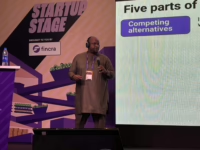Bitcoin tokens shown in Sandy, Utah.
Rick Bowmer/AP
hide caption
toggle caption
Rick Bowmer/AP
The United States government has confiscated nearly $15 billion in bitcoin and charged Chen Zhu, chairman of the Prince Holding Group and a businessman with ties to both the U.K. and Cambodia, with wire fraud and money laundering offenses. According to the Department of Justice, this bitcoin is now held under U.S. government control, marking the largest asset forfeiture in the department’s history.
Federal prosecutors in Brooklyn, New York, revealed an indictment on Tuesday accusing Chen and unnamed collaborators of exploiting forced labor within cyber scam operations based in Cambodia. These operations allegedly defrauded investors worldwide of billions, with some illicit gains used to acquire luxury items such as private jets, yachts, and even fine art like a Picasso painting.
Chen is currently evading capture. If apprehended and convicted, he could face a prison sentence of up to 40 years.
The indictment details how individuals were held captive in these compounds and coerced into running fraudulent investment schemes, commonly referred to as “pig butchering” scams. This term describes a method where scammers build trust with victims over time before ultimately defrauding them of their money.

U.S. authorities describe the Prince Holding Group as a facade for one of Asia’s most extensive transnational criminal networks. The Justice Department emphasized the significance of this operation as a major blow against human trafficking and cyber-enabled financial fraud.
Attorney General Pamela Bondi and Deputy Attorney General Todd Blanche stated, “This enforcement action dismantles a criminal enterprise built on forced labor and deceit. It sends a powerful message that the United States will relentlessly pursue justice, protect victims, and recover stolen assets from those who exploit vulnerable populations for financial gain.”
Neither the Prince Holding Group nor Cambodian officials have issued statements regarding the indictment. Concurrently, U.S. and U.K. authorities imposed sanctions and froze assets linked to Chen’s company, with the Treasury Department officially designating it as a transnational criminal organization.
According to the Treasury Department, American victims lost over $10 billion last year to scams originating from Southeast Asia, marking a 66% increase from the previous year. Most scam operations are located in Cambodia and Myanmar, but experts note that Chinese criminal syndicates primarily orchestrate these schemes.
Jason Tower, a senior analyst at the Global Initiative Against Transnational Organized Crime, commented, “This joint U.S.-U.K. crackdown is the most decisive effort yet to disrupt Chinese-led transnational crime groups fueling Southeast Asia’s burgeoning scam industry.”
He added, “The combination of sanctions, indictments, and asset seizures sends a clear warning to criminal networks and their corrupt supporters in Cambodia, Myanmar, and beyond that such illicit activities will no longer be tolerated.”
However, Tower cautioned that these criminal enterprises have demonstrated remarkable resilience and adaptability.

“We have observed these criminal groups swiftly adjust to previous enforcement efforts by China, which pushed their operations onto a global scale,” Tower explained.
“They have also circumvented regional crackdowns, such as Thailand’s attempts to disrupt their communications and power supplies, by employing satellite internet, solar energy, and generators sourced from Myanmar.”
Furthermore, he noted that attempts to dismantle their money laundering networks have been thwarted as these groups quickly establish new online payment platforms and coordinate activities through encrypted messaging apps like Telegram.
Despite these challenges, Tower believes the coordinated U.S. and U.K. actions send a potent message ahead of the upcoming Association of Southeast Asian Nations (ASEAN) summit in Kuala Lumpur, Malaysia, signaling mounting international pressure on the region’s illicit networks.





















